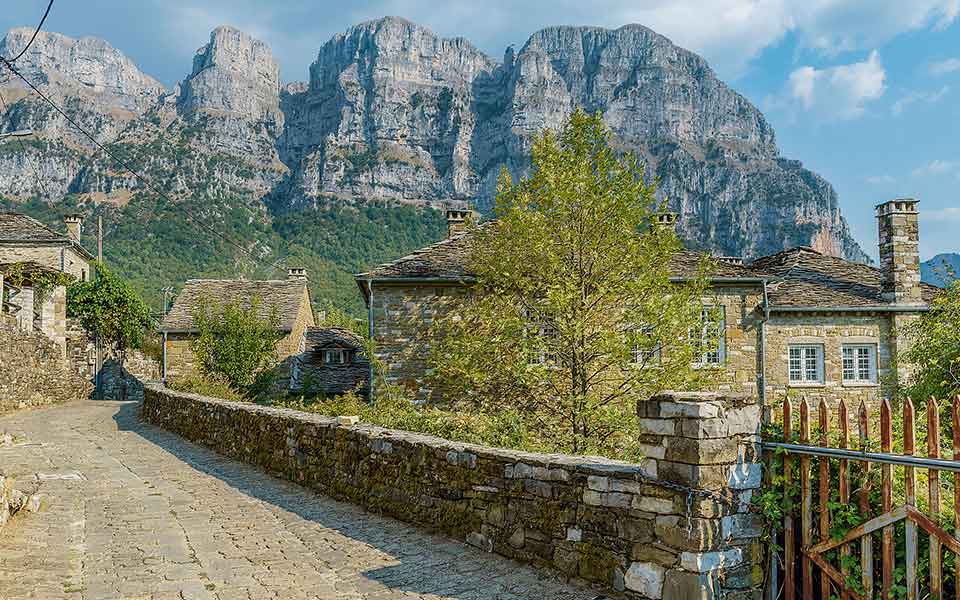Wide smiles and a Greek flag appeared earlier this week in Riyadh, Saudi Arabia, during the 45th Session of the UNESCO World Heritage Committee, when the president confirmed the inscription of Zagori on UNESCO’s prestigious list of World Heritage Sites.
A journey that began four years ago, navigating the numerous branches and committees of the international organization, always at the risk of being diverted, finally came to an end, marking the first time that a “newer cultural asset” in Greece, i.e., a place that is still inhabited, has been included on the famous list. Until recently, UNESCO Sites in Greece have been exclusively sites and monuments from antiquity or the Byzantine period.
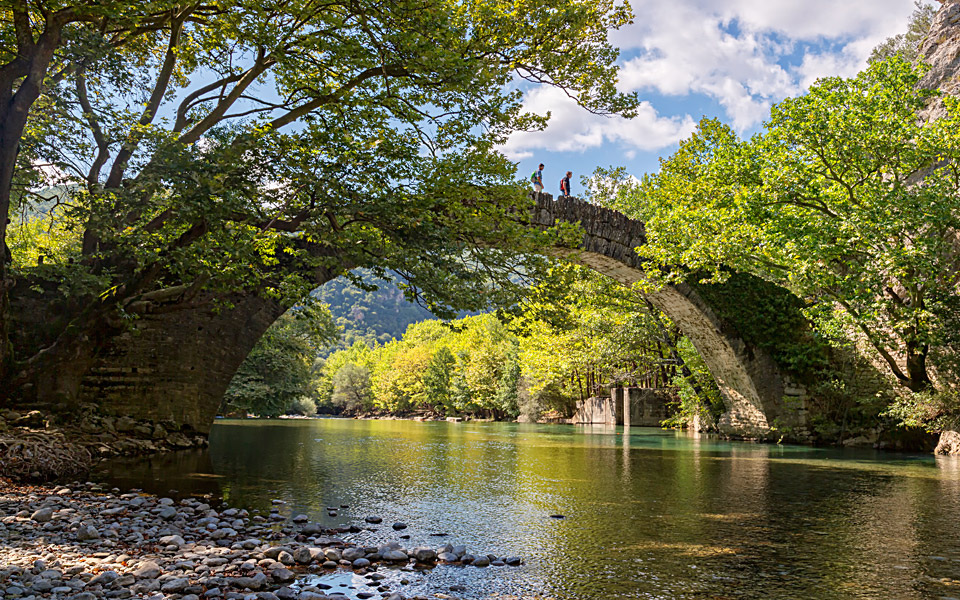
© Perikles Merakos
The Zagori region of Epirus was inscribed in the category of Cultural Landscapes alongside the Pyrenees region of France and the vineyards south of Dijon, famous for its Burgundy wines, the complex of Medici Villas in Tuscany, the Bamiyan Valley in Afghanistan, and Mount Carioca in Rio de Janeiro, site of the iconic statue of Christ the Redeemer.
In the Greek case, UNESCO recognized the universal value of traditional Zagori architecture as integral to the region’s stone-built villages (“Zagorochora”), reflecting – according to the presentation – a special culture, representative of the common heritage of Byzantine and Ottoman municipal architecture in the wider Balkan region. The authenticity and integrity of the Zagorochoria were also recognised, specifically the twenty villages distributed in areas of Central Zagori, Tymfi and Papigo.
“It is an invitation and obligation of our country to preserve and protect this heritage unscathed,” noted Culture Minister Lina Mendoni. Greece is also obliged to create a management body to protect the area.
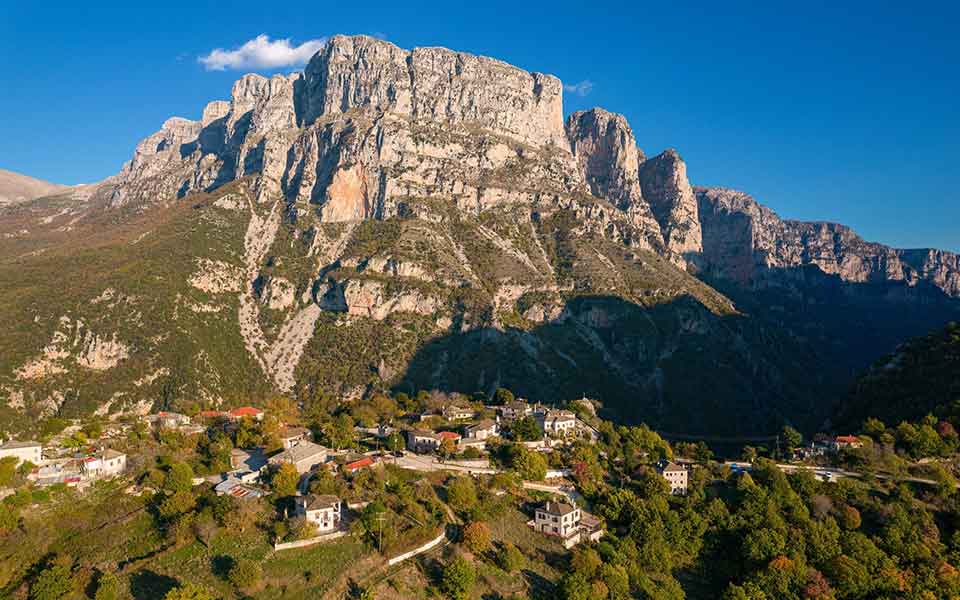
© Shutterstock
The effort to inscribe the region as a UNESCO site began in September 2019, as the honorary director of Antiquities of the Ministry of Culture, Dr. Eugenia Gerousi, head of the team of Greek experts, tells us, “so we started writing the file, holding meetings in Zagori, autopsies, with many different specialties of collaborators.”
The coronavirus and its associated travel restrictions brought our work to a temporary halt. Scientists from many different disciplines, including archaeologists, historians, foresters, biologists, environmentalists, architects, economists, even ethnologists, worked in the whole process of preparing the dossier by the Ministry of Culture and the Region of Epirus. It is not easy for a country to prove the “outstanding universal value” of any given cultural landscape, the main criteria required by UNESCO.
The file was supported by the municipal authorities and local residents. “There’s a gigantic effort going on behind every UNESCO listing that doesn’t seem obvious to anyone who doesn’t know the process,” Gerousi adds. The voluminous dossier, which also included the intangible cultural heritage of the place, such as music, festivals and traditions, was finally submitted in February 2022.
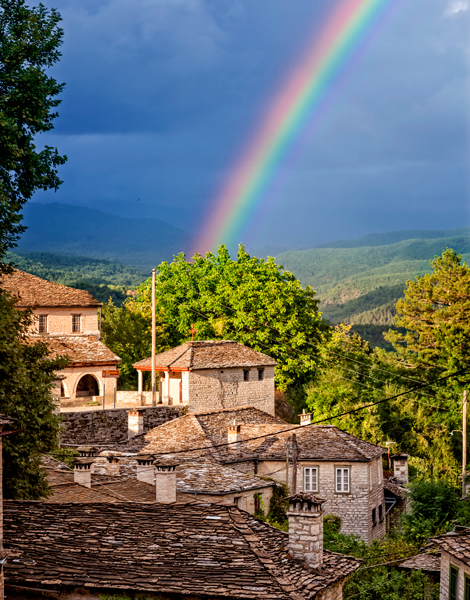
© Perikles Merakos
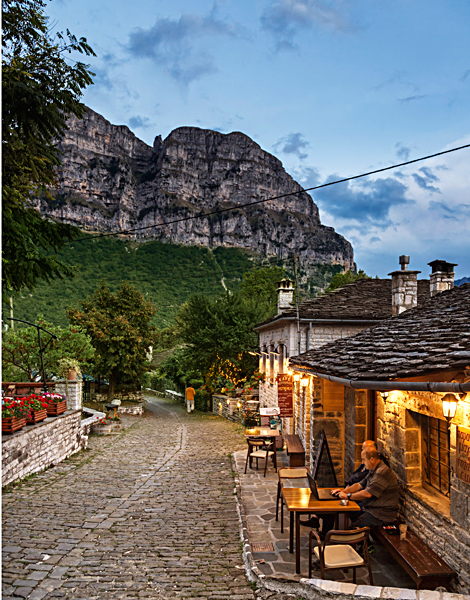
© Perikles Merakos
Overcoming challenges
The path to recognition was challenging. Each country’s applications are examined by UNESCO’s advisory body, ICOMOS (International Council on Monuments and Sites) and when it comes to natural environments, the nomination is also evaluated by the IUCN (International Union for Conservation of Nature).
In the case of Zagori, Greece and UNESCO had two conflicting reports: ICOMOS recognized the conditions for the registration of Zagori and had only a few formal observations, but the IUCN, despite recognizing the biodiversity of the area, considered that the criteria were not met in terms of its “universal value.”
The IUCN, as Mrs. Gerousi says, was asking for the enlargement of the candidate area up to the Aoos River. “This huge expansion would create other problems, however, as this area is not related to Zagori and has the character only of a natural landscape and not of a cultural one,” Gerousi continues. However, the obstacle was overcome by the World Heritage Committee itself, which, by an overwhelming majority (17 out of 20 member states, Greece was excluded from the vote) approved the inscription and deletion of natural criteria with the note that the issue of a (small) enlargement should come up again in the future.
This article was previously published in Greek at kathimerini.gr.

